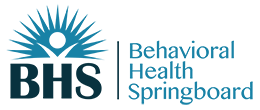Module 1: Overview of Mental Health Conditions
DESCRIPTION
Module 1 provides an overview of mental health challenges as they relate to youth with I/DD. The module covers mood disorders, anxiety disorders, psychotic symptoms, dysruptive behavior disorders, trauma-related symptoms, self-injurious behavior, and adaptations of mental health treatments for youth with I/DD.
TARGET AUDIENCE
The course was developed for a North Carolina audience by experts from UNC Carolina Institute for Developmental Disabilities (CIDD). It is designed for behavioral health providers and intellectual/ developmental disabilities specialists of all levels. Child welfare professionals, court counselors, educators, primary care practitioners, and parents will also benefit.
LEARNING OBJECTIVES
Participants will
- recognize the presentation of common co-occurring disorders in children with I/DD: mood disorders (Depression, Bipolar Disorder, Disruptive Mood Dysregulation Disorder), anxiety disorders (General Anxiety Disorder, Post-traumatic Shock), Psychosis and Psychotic Disorders (Schizophrenia); Disruptive Behavior Disorders (Attention Deficit Hyperactivity Disorder, Oppositional Defiant Disorder, Conduct Disorder)
- recall at least two adaptations to mental health treatments for youth with dual mental health conditions and I/DD.
- name at least three symptoms of Depression[MM2] that may manifest differently in a child with I/DD.
- list at least two strategies for addressing self-injurious behaviors based on the different functions of that behavior.
INSTRUCTORS
In addition to the instructors listed here for each course, the development of this curriculum was inspired by Mental Health Wellness for Individuals with Intellectual and Developmental Disabilities, developed by the Texas Health and Human Services Commission. Subject matter experts at The University of Texas Health Science Center at San Antonio who contributed to the design and content of that course include Andrea Caoli, LCSW, Karyn Harvey, PhD, Karen Weigle, PhD, Lauren Charlot, PhD, and Joan Beasley, PhD.
Laura Politte, MD, is a clinical assistant professor of psychiatry and pediatrics at the University of North Carolina and a faculty member of the Carolina Institute for Developmental Disabilities, a division of UNC School of Medicine. She completed a residency in General Psychiatry and fellowship in Child and Adolescent Psychiatry at Massachusetts General Hospital and then worked as a faculty psychiatrist at Massachusetts General Hospital’s Lurie Center for Autism.
AGENDA
Self-paced online course of 1 hour:
- Mood Disorders
- Anxiety Disorders
- Psychotic Symptoms
- Disruptive Behavior Disorders
- Symptoms from Trauma
- Self-Injury and Suicidality
- Adaptations in Mental Health Treatments for Youth with Co-Occurring Intellectual and Developmental Disabilities.
CONTINUING EDUCATION
The UNC Chapel Hill School of Social Work has been approved by NBCC as an Approved Continuing Education Provider, ACEP No. 6642. Programs that do not qualify for NBCC credit are clearly identified. The UNC Chapel Hill School of Social Work is solely responsible for all aspects of the programs. UNC SSW designates this continuing education activity for 1 contact hour.
The University of North Carolina at Chapel Hill School of Social Work, #1406, is approved to offer social work continuing education by the Association of Social Work Boards (ASWB) Approved Continuing Education (ACE) program. Organizations, not individual courses, are approved as ACE providers. State and provincial regulatory boards have the final authority to determine whether an individual course may be accepted for continuing education credit. The University of North Carolina at Chapel Hill School of Social Work maintains responsibility for this course. ACE provider approval period: 8/10/2025 to 8/10/2028. Social workers completing this course receive 1 continuing education credits.
This module has been approved by NCSAPPB for 1 hr GSB. Approval # 20-369-H-S.
Confirmation Notices and Certificates of Completion: We will confirm your registration by email after payment is received. If you successfully complete this course, your certificate will be ready for you to print or save. Successful completion includes:
- Amount of time spent in the course has met the course minimum.
- You have completed the course evaluation
- You have passed the Post-Test (80%)
POLICIES & ADA STATEMENT
Refund Policy: No refunds will be issued for this event.
Inclement Weather Policy: N/A
ADA Statement: If you require any of the auxiliary aids or services identified in the Americans with Disabilities Act in order to participate in this program, please call us at (919) 843-6083. Websites and courses have been developed in compliance of US Section 508 standards where applicable or meeting W3C priority 1 guidelines for web accessibility.
Please contact bhs-support@unc.edu with any questions or concerns regarding this course.
This course was created with funding from the federal Community Mental Health Services Block Grant Fund (CFDA #93.958) as a project of the NC Division of Mental Health, Developmental Disabilities & Substance Abuse Services.
